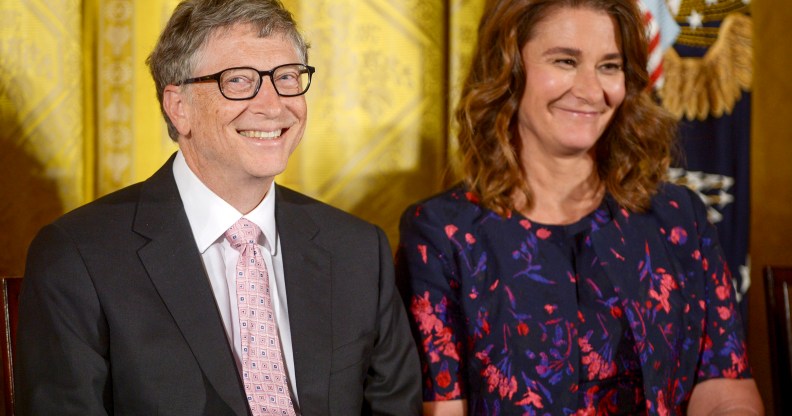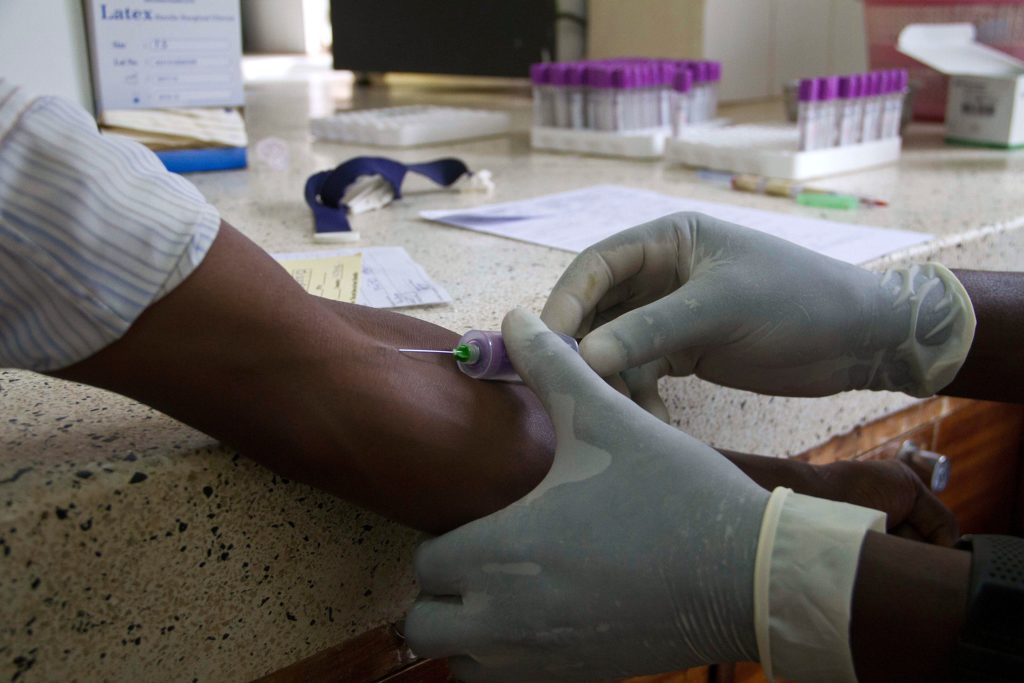Bill and Melinda Gates Foundation just donated $100 million towards gene research for HIV cure

Bill Gates and Melinda Gates, two of the world’s most generous philanthropists, being presented with the 2016 Presidential Medal Of Freedom in 2016 (Leigh Vogel/WireImage/Getty)
The Bill and Melinda Gates Foundation has teamed up with the National Institute of Health (NIH) to develop revolutionary gene-based cures for HIV and sickle cell anaemia.
The billionaire couple are the most generous philanthropists in the US and have previously donated a whopping $287 million to HIV/AIDS research.
They are now giving an additional $100 million which, combined with the NIH’s investment, will amount to at least $200 million over the next four years – a huge boost to researchers fighting the diseases.
It’s particularly vital as scientists recently announced they have discovered a new strain of HIV for the first time in nearly two decades.
Dramatic advances in genetics over the last ten years have made effective gene-based treatments a reality, including new treatments for blindness and certain types of leukaemia.
However, the high cost of these breakthroughs makes them largely inaccessible to much of the world – particularly for those in the resource-poor countries hit hardest by HIV.
But Bill and Melinda Gates and the NIH have vowed that the cures funded by their investment will be affordable and available for all.

A lab technician draws blood from a patient for HIV testing at the AIDS Information Centre in Kampala, Uganda (ISAAC KASAMANI/AFP/Getty)
The idea is to focus “on access, scalability, and affordability … to make sure everybody, everywhere has the opportunity to be cured, not just those in high-income countries,” NIH Director Francis Collins said in a statement. “We aim to go big or go home.”
They hope to bring safe, effective and durable gene-based cures to clinical trials in the United States and sub-Saharan Africa within the next seven to 10 years.
Anthony S Fauci, director of the NIH’s National Institute of Allergy and Infectious Diseases, agreed that it was an “ambitious” step.
“[We are] harnessing the most cutting-edge scientific tools and NIH’s sizeable global HIV research infrastructure to one day deliver a cure and end the global HIV pandemic,” he said.
“We are taking into account those with the greatest need at the foundation of this effort, to ensure that, if realised, this exceptional public health achievement will be made accessible to all.”

